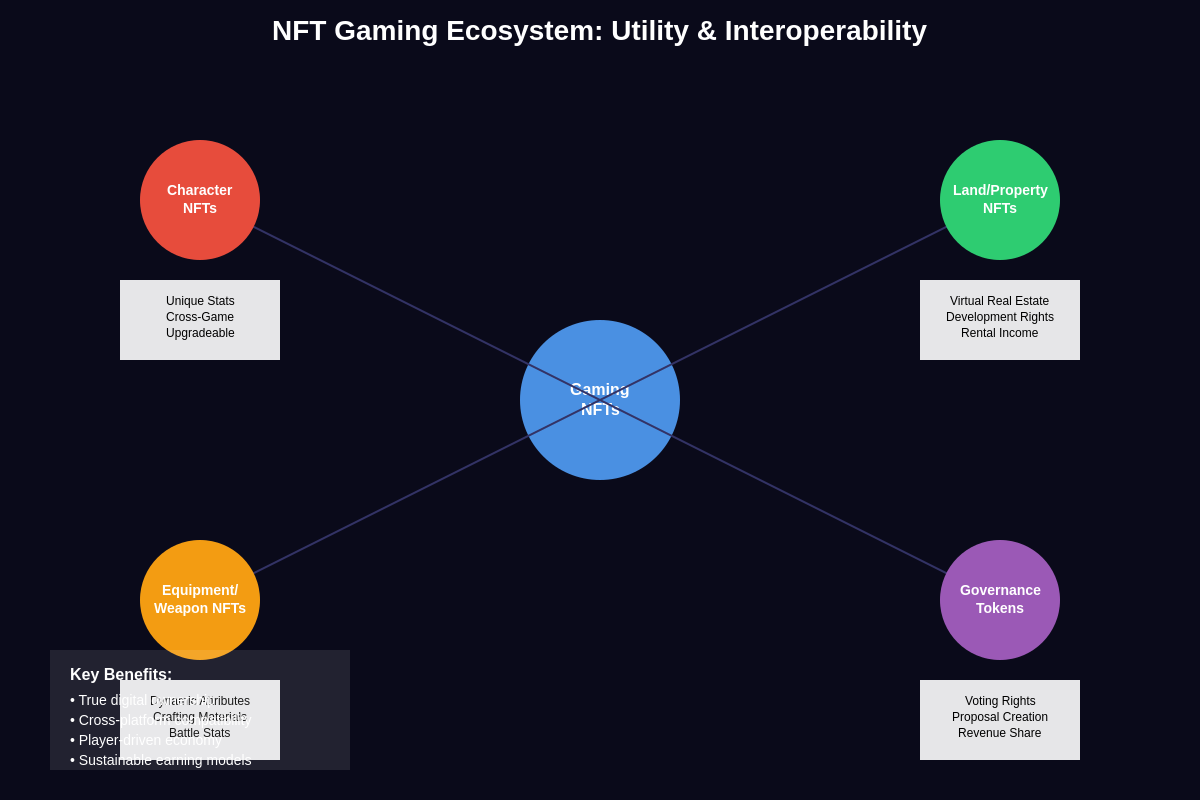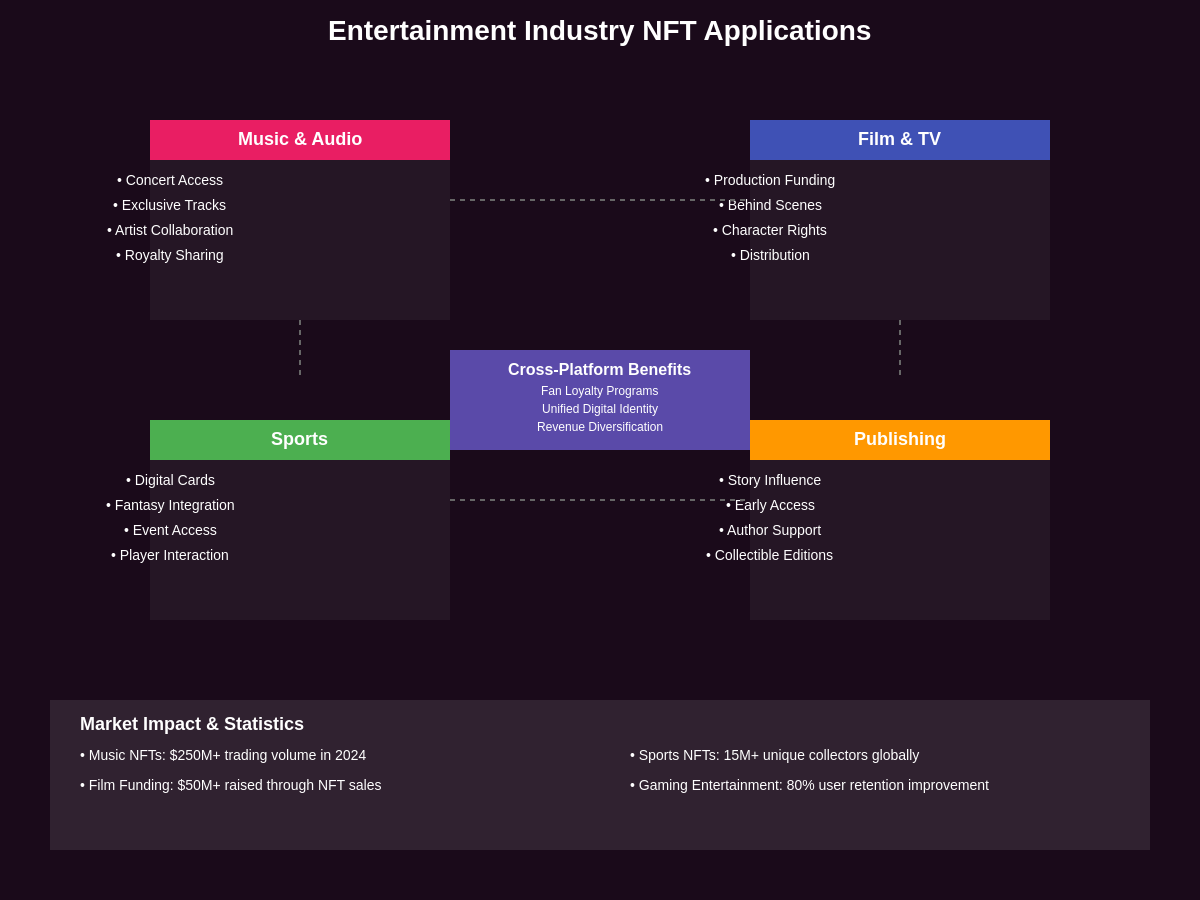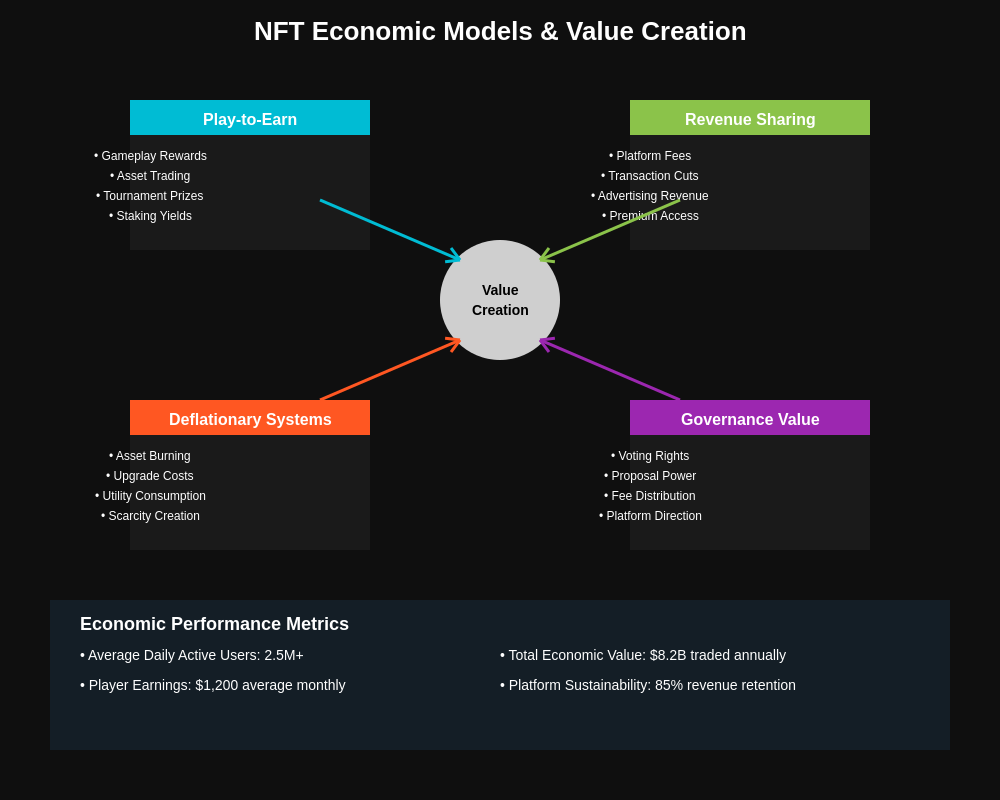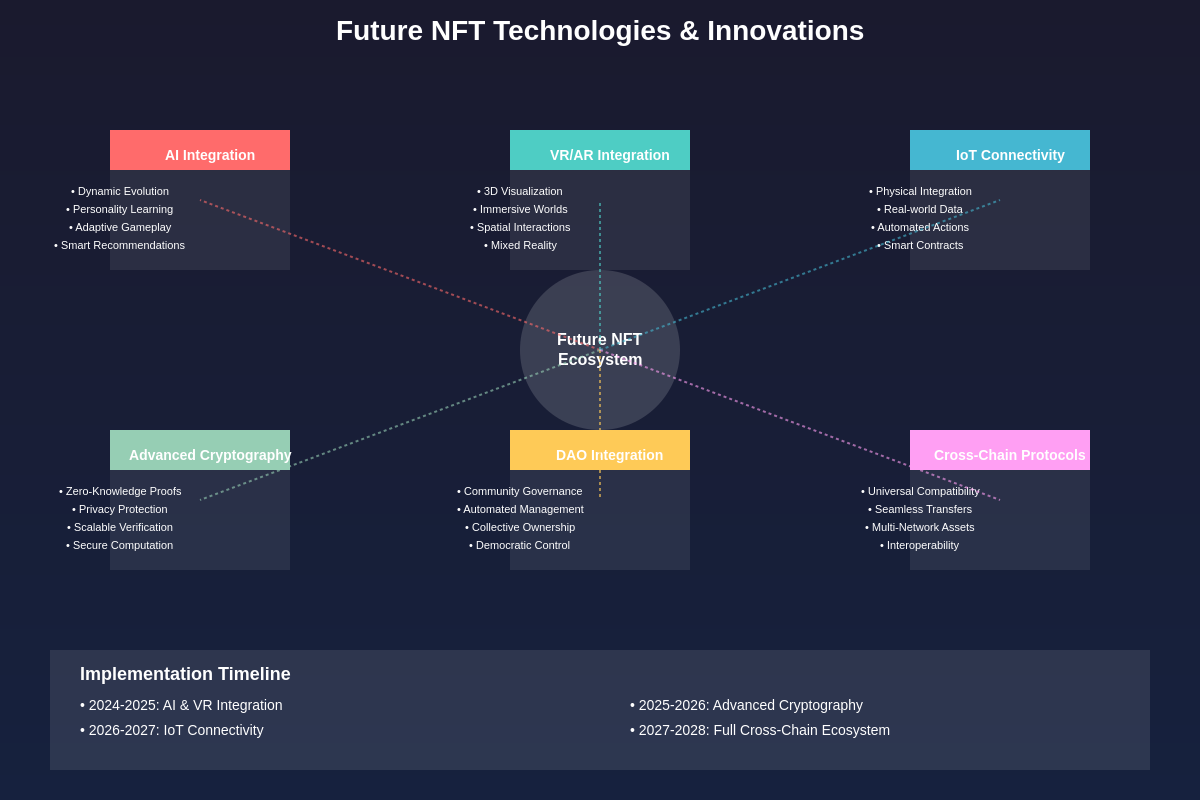https://www.tradingview.com/pine-script-reference/v6/?aff_id=112991&source=pine-16-tradingview
The Evolution from Digital Collectibles to Functional Assets
The non-fungible token landscape has undergone a dramatic transformation from simple digital art collections to sophisticated utility-driven assets that power entire gaming ecosystems and entertainment platforms. While the initial NFT boom of 2021 focused primarily on profile pictures and collectible art, the gaming and entertainment industries have pioneered innovative use cases that demonstrate the true potential of blockchain-based digital ownership and programmable assets.
Gaming NFTs have evolved beyond mere cosmetic items to become integral components of game mechanics, representing characters with unique attributes, land parcels with development rights, weapons with upgradeable stats, and governance tokens that provide players with decision-making power over game development. This evolution represents a fundamental shift from traditional gaming models where players spend money on items they never truly own to blockchain-based systems where digital assets can be owned, traded, and utilized across multiple games and platforms.

The entertainment industry has similarly embraced utility NFTs as tools for fan engagement, content distribution, and monetization, with musicians using NFTs to provide exclusive access to concerts and unreleased tracks, filmmakers utilizing them for crowdfunding and distribution rights, and sports organizations creating digital trading cards that unlock real-world experiences and exclusive content. These applications demonstrate how NFTs can create new revenue streams while enhancing fan experiences through true digital ownership and scarcity.
Gaming Revolution Through Blockchain Assets
The integration of NFTs into gaming has created entirely new economic models that blur the lines between entertainment and investment, enabling players to earn real-world value through gameplay while providing developers with innovative monetization strategies. Play-to-earn games have demonstrated the potential for players to generate significant income through skilled gameplay, strategic trading, and long-term asset accumulation, creating virtual economies that rival traditional financial markets in complexity and trading volume.
Character NFTs in role-playing games represent one of the most sophisticated implementations of utility tokens, with each character possessing unique attributes, skills, and evolutionary potential that can be enhanced through gameplay and combined with other NFTs to create increasingly powerful entities. These characters often function across multiple games within the same ecosystem, allowing players to leverage their investments in character development across various gaming experiences while maintaining persistent progression and identity.
Land ownership NFTs have created virtual real estate markets where players can purchase, develop, and monetize digital properties within game worlds, leading to the emergence of virtual architects, landlords, and property developers who generate income through creative development and strategic positioning of their digital assets. Major gaming platforms report land sales reaching millions of dollars for premium locations, demonstrating the real economic value of virtual real estate ownership.
Equipment and weapon NFTs introduce dynamic gameplay elements where items possess unique attributes, upgrade paths, and cross-game compatibility, allowing skilled crafters and traders to specialize in creating and optimizing valuable gaming assets. These systems create complex secondary markets where players analyze statistical attributes, rarity distributions, and meta-game strategies to identify undervalued assets and profitable trading opportunities.
Guild and clan governance NFTs enable players to participate in the management and strategic direction of gaming organizations, providing voting rights on resource allocation, expansion strategies, and partnership decisions while sharing in the collective success of their gaming communities. These governance mechanisms create democratic structures within gaming ecosystems that align player interests with long-term platform development and sustainability.
Entertainment Industry Transformation
The entertainment industry has embraced utility NFTs as powerful tools for direct fan engagement, content monetization, and creative collaboration, fundamentally changing how artists, creators, and performers interact with their audiences while creating new revenue streams that bypass traditional intermediaries. Musicians have pioneered innovative NFT applications that provide fans with exclusive access to unreleased tracks, backstage experiences, and collaborative creative processes while generating sustainable income streams that support artistic independence.

Concert and event access NFTs have created tiered fan experiences where token holders receive progressively exclusive benefits including early ticket access, VIP experiences, meet-and-greet opportunities, and participation in private performances, creating loyalty programs that reward long-term fan engagement while providing artists with predictable revenue streams and direct audience connections. These systems have proven particularly valuable for independent artists who can build sustainable careers through dedicated fan communities willing to invest in exclusive experiences and content.
Film and television NFTs have enabled innovative funding and distribution models where fans can invest in productions through NFT purchases that provide profit-sharing opportunities, creative input rights, and exclusive behind-the-scenes content access, democratizing entertainment financing while creating more intimate connections between creators and audiences. Several independent films have successfully funded production through NFT sales, demonstrating the viability of blockchain-based entertainment financing as an alternative to traditional studio systems.
Sports NFTs have evolved beyond simple trading cards to include utility features such as fantasy sports integration, real-world event access, player interaction opportunities, and performance-based rewards that fluctuate based on actual athletic achievements, creating dynamic collectibles that maintain ongoing engagement throughout sports seasons. Major sports leagues report trading volumes exceeding traditional card markets, indicating strong consumer adoption of digital sports collectibles with enhanced utility features.
Publishing and literary NFTs have introduced novel concepts such as collaborative storytelling where token holders can influence narrative directions, exclusive chapter releases for early supporters, and author royalty sharing that provides readers with financial incentives to promote and support their favorite writers, creating sustainable publishing models that benefit both creators and consumers while fostering stronger literary communities.
Technical Infrastructure and Interoperability
The technical infrastructure supporting utility NFTs has evolved to address scalability, interoperability, and user experience challenges that initially limited mainstream adoption, with layer-2 solutions, cross-chain protocols, and improved wallet interfaces making blockchain gaming and entertainment applications more accessible to traditional consumers. Gas fee optimization through various scaling solutions has made microtransactions and frequent NFT interactions economically viable, enabling complex gaming mechanics that require multiple blockchain interactions per gaming session.
Cross-chain compatibility has emerged as a crucial feature for utility NFTs, allowing assets to function across multiple blockchain networks and gaming platforms, creating truly portable digital ownership that transcends individual games or ecosystems. This interoperability is facilitated by bridge protocols and standardized metadata formats that ensure NFT functionality is preserved when moving between different blockchain environments and gaming platforms.
Smart contract standards for utility NFTs have evolved beyond basic ownership verification to include complex functionality such as dynamic attributes that change based on usage patterns, automated royalty distribution to multiple stakeholders, and conditional access rights that activate based on external data feeds or user behaviors. These advanced smart contract features enable sophisticated game mechanics and entertainment applications that would be impossible with traditional digital asset systems.
Integration with traditional gaming engines and entertainment platforms has been streamlined through specialized APIs and development tools that allow creators to incorporate blockchain functionality without extensive blockchain development expertise, lowering barriers to entry for traditional game developers and entertainment companies interested in exploring NFT applications. Major gaming engines now include native blockchain integration tools that simplify the implementation of NFT-based features and mechanics.
https://www.tradingview.com/pine-script-reference/v6/?aff_id=112991&source=pine-16-tradingview
Economic Models and Tokenomics
The economic models underlying utility NFTs in gaming and entertainment have created complex virtual economies that require careful balance between player rewards, developer sustainability, and long-term token value appreciation, leading to sophisticated tokenomic designs that incorporate multiple value accrual mechanisms and economic incentives. Successful gaming NFT projects implement deflationary mechanisms through asset burning, staking rewards, and utility consumption that create sustainable demand for tokens while providing players with multiple pathways to generate value through skilled gameplay and strategic asset management.

Revenue sharing models have emerged as particularly effective approaches for aligning stakeholder interests, with successful projects distributing portions of platform revenue to NFT holders based on their contribution to ecosystem growth, gameplay achievements, or governance participation, creating sustainable passive income streams that incentive long-term holding and active platform participation. These models have demonstrated the potential for gaming and entertainment NFTs to function as productive assets that generate ongoing returns rather than purely speculative investments.
Play-to-earn economics require sophisticated balancing to prevent inflation while ensuring meaningful earning opportunities for players across different skill levels and time investment capacities, leading to tiered reward systems that provide entry-level earning opportunities while rewarding skilled players and strategic thinkers with higher potential returns. Successful projects implement multiple earning mechanisms including direct gameplay rewards, trading profits, content creation incentives, and community contribution recognition that create diverse pathways to value generation.
Governance token integration with utility NFTs has created hybrid economic models where players simultaneously own functional gaming assets and decision-making power over platform development, aligning player interests with long-term ecosystem health while creating democratic structures that ensure community needs are addressed in platform evolution and strategic planning. These governance mechanisms have proven effective at creating engaged communities that actively contribute to platform improvement and sustainable growth.
Cross-Platform Integration and Metaverse Applications
The development of cross-platform NFT integration has enabled the creation of shared virtual identities and assets that function across multiple games and entertainment platforms, laying the groundwork for comprehensive metaverse experiences where users maintain consistent digital ownership and identity regardless of which platform they are currently engaging with. This interoperability has created network effects where the value of NFT assets increases as they become usable across more platforms and applications.
Avatar and identity NFTs have evolved to support rich customization options and cross-platform compatibility, allowing users to maintain consistent digital personas across gaming, social, and entertainment applications while expressing individual creativity and style preferences through blockchain-verified digital assets. These identity systems create valuable network effects where users become more invested in platforms that support their existing digital identity investments.
Virtual world integration has enabled NFT holders to utilize their gaming assets within social and entertainment contexts, creating hybrid experiences where gaming achievements translate to social status and entertainment access, while social and entertainment NFTs provide advantages within gaming contexts, creating comprehensive digital lifestyle ecosystems that reward engagement across multiple platform categories.
Intellectual property licensing through NFTs has created new models for cross-platform content sharing where creators can license their characters, stories, and assets for use across multiple games and entertainment platforms while maintaining ownership rights and receiving ongoing royalties from their creative work, enabling sustainable creative careers that span multiple platforms and media formats.
Marketplace integration across platforms has created liquid secondary markets where users can easily trade assets between different games and entertainment applications, creating price discovery mechanisms and ensuring that valuable NFTs maintain transferable value even if users lose interest in specific platforms or gaming genres, providing confidence for long-term investment in digital assets.
User Experience and Mainstream Adoption
The user experience for utility NFTs has significantly improved through the development of intuitive wallet interfaces, simplified onboarding processes, and integrated marketplaces that hide blockchain complexity from end users while providing the benefits of true digital ownership and asset portability. Modern NFT gaming and entertainment applications feature user interfaces that are indistinguishable from traditional applications while providing enhanced functionality through blockchain integration.
Custodial and non-custodial wallet solutions have evolved to provide users with choices between simplified management through trusted providers and full self-custody of their digital assets, allowing mainstream users to engage with NFT applications without requiring extensive blockchain knowledge while providing options for users who prefer complete control over their digital assets. These solutions have significantly reduced the technical barriers that previously limited NFT adoption among traditional gaming and entertainment consumers.
Mobile integration has become crucial for mainstream NFT adoption, with dedicated mobile applications providing full functionality for NFT gaming and entertainment while optimizing for touch interfaces and mobile-specific features such as location-based gameplay and augmented reality integration that leverage smartphone capabilities to create unique blockchain-powered experiences.
Social features and community integration have emerged as key differentiators for successful utility NFT platforms, with built-in social networks, guild systems, and collaborative features that create sticky user experiences and strong network effects that encourage long-term platform engagement while fostering valuable community relationships that extend beyond individual gaming or entertainment sessions.
Educational resources and customer support have become essential components of successful NFT platforms, with comprehensive onboarding materials, video tutorials, and responsive customer service helping traditional consumers understand the benefits and mechanics of blockchain-based digital ownership while providing ongoing support for technical issues and strategic guidance for asset management and optimization.
Legal and Regulatory Considerations
The regulatory landscape for utility NFTs in gaming and entertainment continues to evolve as governments and regulatory bodies work to understand and classify these new forms of digital assets, with different jurisdictions taking varying approaches to NFT regulation that affect how platforms can operate and what features they can offer to users in different geographic regions. Gaming companies operating internationally must navigate complex regulatory requirements that vary significantly between markets while ensuring compliance with local laws regarding digital assets, gambling regulations, and consumer protection requirements.
Intellectual property considerations have become increasingly complex as NFTs enable new forms of digital ownership and licensing that challenge traditional copyright and trademark frameworks, requiring careful legal structuring to ensure that NFT owners receive legitimate ownership rights while respecting the intellectual property rights of original creators and license holders. Successful NFT projects invest heavily in legal frameworks that clearly define ownership rights, usage permissions, and transfer restrictions to prevent legal disputes and ensure sustainable operation.
Consumer protection regulations are evolving to address the unique characteristics of NFT ownership including questions about refund rights, platform liability for technical issues, and disclosure requirements for NFT functionality and associated risks, creating compliance challenges for platforms while providing important protections for consumers who may not fully understand the technical and economic risks associated with blockchain-based digital assets.
Tax implications for utility NFT ownership and trading vary significantly between jurisdictions and continue to evolve as regulatory authorities develop guidance for cryptocurrency and NFT taxation, creating compliance challenges for both platforms and users while requiring careful record-keeping and reporting for tax purposes. Professional tax advice has become essential for serious NFT investors and traders who need to understand their obligations and optimize their tax strategies.
Anti-money laundering and know-your-customer requirements are being extended to NFT platforms in many jurisdictions, requiring robust identity verification and transaction monitoring systems that can detect suspicious activities while maintaining user privacy and platform usability, creating operational challenges and compliance costs that affect platform design and user experience.
Future Innovations and Emerging Technologies
Artificial intelligence integration with utility NFTs promises to create dynamic assets that evolve and adapt based on user behavior, market conditions, and external data feeds, enabling NFT characters that learn and develop personality traits through interaction, gaming assets that optimize their attributes based on usage patterns, and entertainment content that personalizes itself to individual user preferences while maintaining blockchain-verified authenticity and ownership.

Virtual and augmented reality integration represents a significant opportunity for utility NFTs to provide enhanced immersive experiences where digital assets can be visualized and interacted with in three-dimensional environments, creating new forms of digital ownership and utility that bridge the gap between digital and physical experiences while leveraging advanced display technologies to create compelling user experiences.
Internet of Things integration could enable utility NFTs to interface with physical devices and real-world systems, creating hybrid digital-physical assets that provide both virtual and tangible benefits to their owners while enabling new forms of automated interactions between blockchain systems and connected devices that create seamless user experiences spanning digital and physical environments.
Decentralized autonomous organization integration with gaming and entertainment NFTs could create self-governing platforms where token holders collectively make decisions about platform development, content curation, and resource allocation while ensuring that community interests are aligned with platform success and long-term sustainability through democratic governance mechanisms and transparent decision-making processes.
Advanced cryptographic techniques such as zero-knowledge proofs could enable privacy-preserving NFT applications that protect sensitive user data while maintaining the transparency and verifiability benefits of blockchain technology, creating opportunities for sophisticated gaming mechanics and entertainment applications that require privacy protection while preserving the trust and authenticity benefits of public blockchain systems.
Market Analysis and Investment Perspectives
The utility NFT market has demonstrated significant growth potential with gaming NFT trading volumes reaching billions of dollars annually while entertainment NFT applications continue to expand into new verticals and use cases, creating diverse investment opportunities for both individual collectors and institutional investors seeking exposure to the growing digital asset economy. Market analysis indicates that utility-focused NFTs maintain value more effectively than purely artistic NFTs during market downturns, suggesting that functional utility provides fundamental value support that enhances long-term investment attractiveness.
Venture capital investment in utility NFT platforms has increased substantially as institutional investors recognize the potential for blockchain-based gaming and entertainment to create entirely new market categories with significant revenue potential, leading to well-funded development teams that can invest in high-quality user experiences and sophisticated technical infrastructure that supports mainstream adoption and sustainable growth.
Gaming industry partnerships with blockchain platforms have created legitimacy and development resources for utility NFT applications while providing traditional gaming companies with new monetization opportunities and competitive advantages through blockchain integration, suggesting that utility NFTs will become increasingly common features in mainstream gaming and entertainment applications as industry leaders recognize their strategic value.
Secondary market analysis reveals that utility NFTs with proven functionality and active user bases maintain higher price floors and more stable valuations compared to speculative NFTs without clear utility, indicating that functional value creation is becoming the primary driver of long-term NFT value appreciation rather than speculative trading or artistic appreciation alone.
Portfolio diversification through utility NFTs provides exposure to multiple growing sectors including gaming, entertainment, and blockchain technology while offering potential returns through both asset appreciation and utility-based income generation, creating attractive risk-adjusted return profiles for investors who understand the technical and market dynamics of blockchain-based digital assets and can evaluate the fundamental value propositions of different utility NFT projects.
Community Building and Social Impact
Utility NFTs have demonstrated remarkable ability to create engaged communities around shared ownership and common interests, with successful projects fostering active Discord servers, social media communities, and real-world meetups that extend far beyond simple asset ownership to create lasting social connections and collaborative relationships among community members who share similar interests and investment in platform success.
Creator economy empowerment through utility NFTs has provided artists, developers, and content creators with new pathways to monetize their work and build sustainable careers while maintaining greater control over their intellectual property and direct relationships with their audiences, enabling creative independence that was previously difficult to achieve through traditional entertainment industry structures and intermediary platforms.
Educational impact through gamified learning experiences powered by utility NFTs has created innovative approaches to education where students can earn and own digital assets that represent their achievements and knowledge while participating in immersive learning environments that make education more engaging and rewarding through blockchain-based incentive systems and collaborative problem-solving challenges.
Social good applications have emerged where utility NFTs support charitable causes, environmental initiatives, and community development projects while providing holders with functional benefits and ongoing engagement opportunities, demonstrating how blockchain technology can create positive social impact while maintaining sustainable economic models that benefit all stakeholders involved in the platform ecosystem.
Cultural preservation through NFTs has enabled the documentation and monetization of traditional games, stories, and artistic expressions while providing indigenous communities and cultural creators with new revenue streams and global audience access that helps preserve and share cultural heritage through modern technology platforms that respect traditional ownership and attribution practices.
https://www.tradingview.com/pine-script-reference/v6/?aff_id=112991&source=pine-16-tradingview
Disclaimer: This article is for informational purposes only and does not constitute financial advice. Cryptocurrency and NFT investments carry significant risks including total loss of capital. The regulatory environment for NFTs remains uncertain and may change rapidly. Always conduct thorough research and consider consulting with qualified financial advisors before making investment decisions. Past performance does not guarantee future results, and the utility NFT market is highly speculative and volatile.